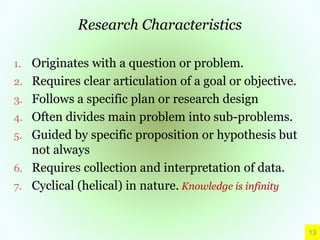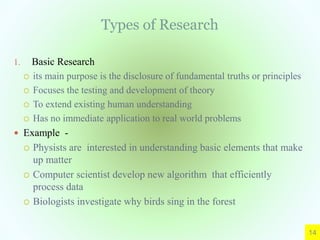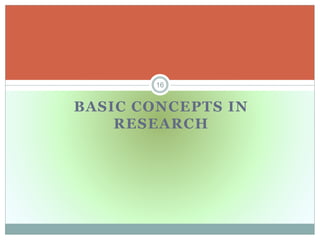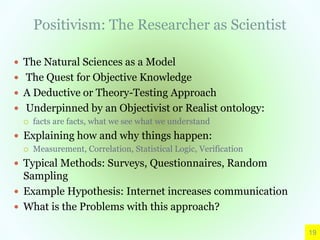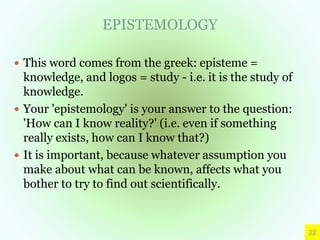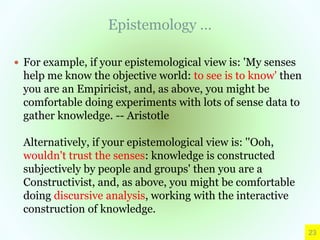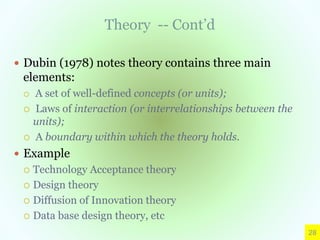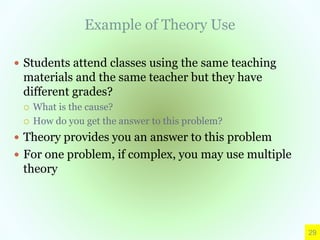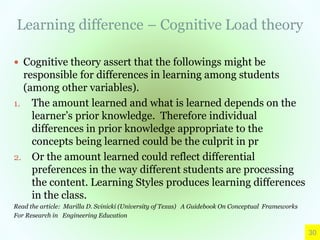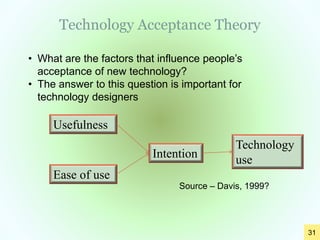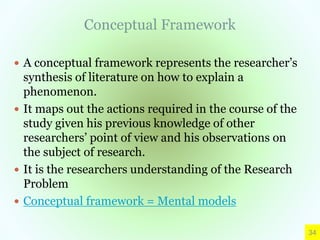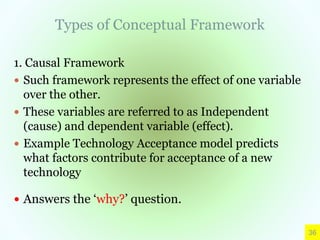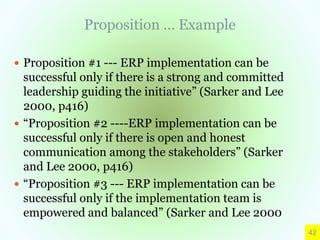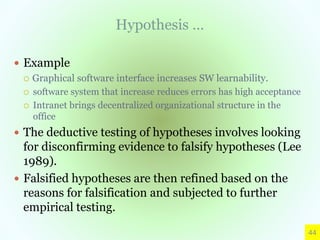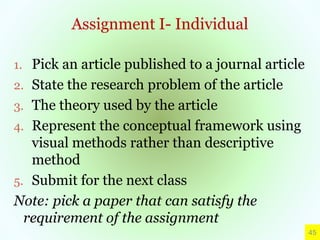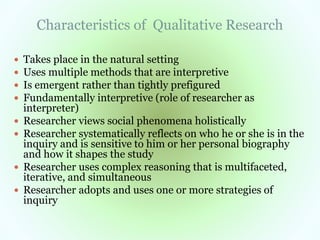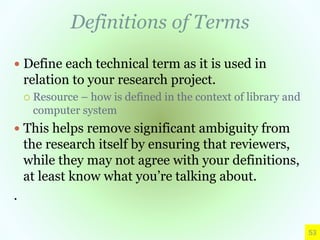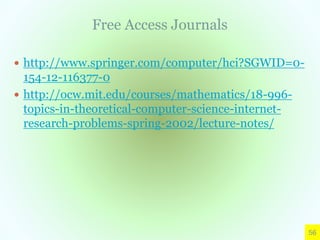This document outlines the learning objectives and content for a course on research methods for computer science and software engineering. The objectives include explaining the purpose of research, understanding basic research concepts, acquiring skills to formulate research problems and design research projects. The document discusses different research approaches like quantitative, qualitative and design science methods. It also covers topics like theories, constructs, variables, conceptual frameworks, propositions, and hypotheses. The teaching methods will include lectures, group work, projects and presentations. Students will be evaluated based on assignments, exams and participation.
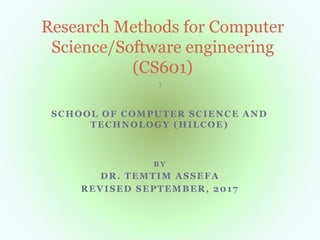




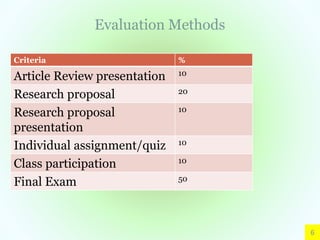
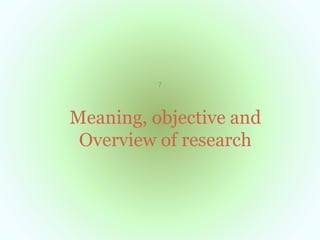
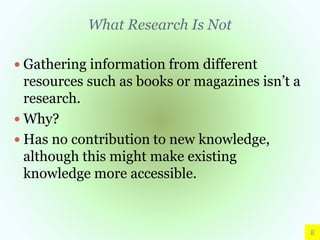
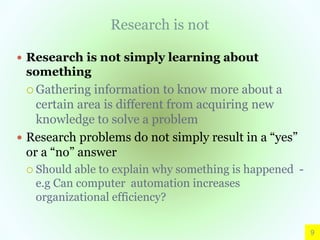
![Research: A Definition
“…the systematic process of collecting and
analyzing data) in order to increase our
understanding of the phenomenon about
which we are concerned or interested.”
an activity that contributes to the
understanding of a phenomenon [Kuhn,
1962; Lakatos, 1978]
10](https://image.slidesharecdn.com/ch-1researchintroduciton-190314113853/85/Ch-1-research-introduciton-10-320.jpg)


